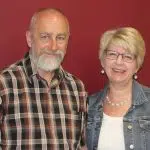
Saskatchewan seeks to address stagnant vaccine uptake
Saskatchewan is looking to jumpstart its stalled COVID-19 vaccination program.
Chief medical health officer Dr. Saqib Shahab said during a conference call Thursday the vaccine uptake has “stagnated,” especially in terms of first doses.
As of Thursday, 87 per cent of eligible Saskatchewan residents have got their first shot — and that number hasn’t grown much in recent weeks.
Shahab noted most first doses now are going into the arms of children between the ages of five and 11, a group that only became eligible Wednesday.




